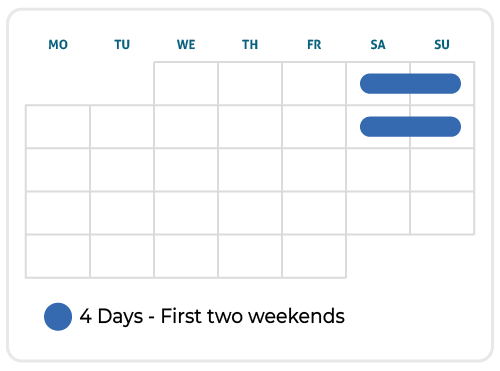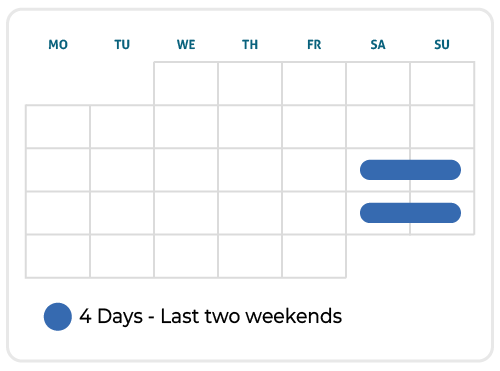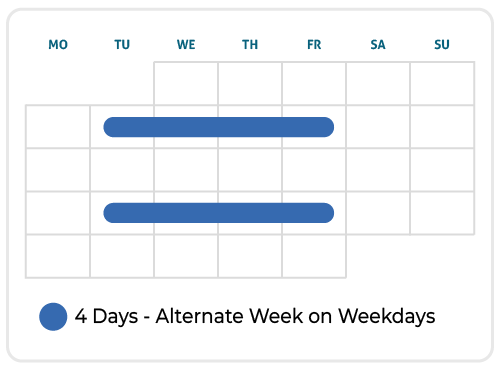Deep Learning Training Program Overview Newcastle Upon Tyne, England
You've been applying standard Machine Learning models, but the cutting edge - the projects defining the future of AI in Newcastle Upon Tyne, England finance, healthcare, and autonomous tech - requires Deep Learning expertise. HR filters resumes for candidates experienced in CNNs for image classification or LSTMs for time-series prediction. Your skills are broad; the industry demands mastery of deep learning algorithms and deep learning frameworks. This isn't a conceptual overview. Our Deep Learning course is engineered by seasoned AI Architects and Senior ML Engineers tackling GPU limitations, vanishing gradients, and training models on massive real-world datasets in Newcastle Upon Tyne, England. You'll gain hands-on experience with deep learning AI systems, bridging the gap between theory and production-ready solutions. Unlike superficial courses that provide only code snippets, this deep learning specialization focuses on practical engineering. You'll master the mathematics behind backpropagation and gradient descent, enabling you to debug and optimize any network architecture. Learn the trade-offs between optimizers (Adam vs. RMSprop) and regularization techniques (Dropout vs. L2) that save training time while boosting accuracy. Designed for ambitious professionals in Hyderabad, Chennai, and Pune, the program offers weekday evening and weekend batches, fully interactive with coding exercises and mathematical Q&A. Every session is recorded. Beyond the training, you gain access to complex, real-world Newcastle Upon Tyne, England image and text datasets for hands-on deep learning projects, 24/7 expert support, and guidance to build a specialized GitHub portfolio. This ensures your deep learning with Python expertise and portfolio open doors to top AI firms globally.
Deep Learning Training Course Highlights Newcastle Upon Tyne, England
TensorFlow and Keras Mastery
Gain proficiency in the industry-standard libraries, focusing on building and deploying complex models efficiently and scalably.
Taught by AI Architects
Unlock your potential with expert instructors who are actively designing and managing Deep Learning pipelines in high-stakes production environments.
Mathematically Rigorous Approach
Master the concepts fast with 120+ hours of instruction focused on the mathematical "why," enabling you to effectively debug and innovate.
Production-Grade Projects
Execute multiple mandatory, high-impact projects on real-world datasets, moving from Jupyter Notebooks to cloud-deployable solutions.
Exhaustive Practice Materials
Get on top of your weaknesses with 2000+ tailor-made technical questions covering architecture, math, and optimization best practices.
24x7 Expert Guidance & Support
Be worry-free as certified AI experts are available 24x7 to solve your complex coding and mathematical modeling doubts.
Corporate Training

Ready to transform your team?
Get a custom quote for your organization's training needs.
Upcoming Schedule



Skills You Will Gain In Our Deep Learning Training Program city83647
Core Neural Network Architecture
Learn to design, initialize, and structure multi-layered networks. You will master the practical trade-offs of using various activation functions and loss metrics for different problem types.
Gradient Descent and Optimization
Stop relying on default settings. You will gain a deep understanding of backpropagation and how to choose and tune advanced optimizers (Adam, RMSprop, AdaGrad) for faster, more stable model convergence.
Convolutional Neural Networks (CNNs)
Master the application of CNNs for image and video data. You will learn to design complex architectures (ResNet, VGG) and implement critical techniques like transfer learning and data augmentation.
Recurrent Neural Networks (RNNs/LSTMs)
Learn to process sequential data like text, time series, and speech. You will master the architecture and deployment of LSTMs and GRUs to solve forecasting and natural language processing (NLP) challenges.
Optimization and Regularization
Become a hyperparameter tuning expert. You will learn practical methods to combat overfitting (the biggest failure point) using techniques like Dropout, Batch Normalization, and early stopping.
Deep Learning Deployment
Master the production pipeline. You will learn how to serialize models, optimize them for mobile/edge devices, and deploy them as scalable services on cloud infrastructure.
Who This Program Is For
Experienced Machine Learning Engineers
Data Scientists
Research Scientists
Python Developers
Senior Technical Architects
PhD or M.Tech Students Seeking Production-Level Deep Learning Experience
If you lead projects and meet PMI's mandatory experience requirements, this program is engineered to get you certified.
Deep Learning Certification Training Program Roadmap Newcastle Upon Tyne, England
Why get Deep Learning-certified?
Stop Getting Filtered by Specific Tech Demands
Stop getting filtered out by firms demanding "experience with CNNs and LSTMs" or "TensorFlow deployment at scale."
Unlock the Highest Salary Bands and Stock Options
Unlock the highest salary bands and stock option packages reserved for specialists who solve complex, non-linear AI problems.
Transition to Strategic AI Systems Architect
Transition from a general data practitioner to an AI systems architect who designs the future of predictive technology.
Eligibility & Prerequisites
This certification is for the serious professionals who have a solid foundation in core technical and mathematical disciplines. It is not for beginners.
Mandatory Programming and ML Foundation: Non-negotiable proficiency in Python and fundamental Machine Learning concepts (e.g., cross-validation, bias-variance tradeoff, basic regression/classification).
Advanced Mathematical Aptitude: Essential working knowledge of Multivariable Calculus (partial derivatives, chain rule for gradients) and Linear Algebra (matrix/vector operations). The training includes a refresher, but a solid base is required.
GPU/Compute Familiarity (Preferred): Experience utilizing cloud environments (AWS/GCP/Azure) or local GPUs for high-compute tasks is highly beneficial, as Deep Learning models are computationally expensive.
Commitment to Intensity: This course moves at the pace of innovation. You must commit substantial time to hands-on coding and solving mathematically complex problems.
Course Modules & Curriculum
Lesson 1: Gradient Descent and Backpropagation Mastery
Master the mathematics of backpropagation - the engine of Deep Learning. Understand how gradients are calculated and propagated backward through the network to update weights, a non-negotiable skill for debugging.
Lesson 2: Optimization Techniques
Learn the practical necessity of advanced optimizers. Master the differences and application of Adam, RMSprop, and Adagrad to achieve faster convergence and avoid local minima during complex model training.
Lesson 3: Optimization and Regularization
Combat overfitting (the biggest failure mode). You will learn and implement key regularization techniques including L1/L2 loss, Dropout, and the critical use of Batch Normalization to stabilize training and improve generalization.
Lesson 1: Intro to Convolutional Neural Networks (CNNs) & Architecture
Gain a deep, mathematical understanding of Convolutional Neural Networks (CNNs) - the cornerstone of Deep Learning AI for image processing and computer vision. Learn how convolutional, pooling, and flatten layers work together to extract spatial features. You'll calculate parameters, output shapes, and understand why CNNs outperform traditional deep learning algorithms for visual tasks
Lesson 2: Advanced CNN Techniques
Dive into high-performance strategies: Transfer Learning using pre-trained models (VGG, ResNet) and advanced techniques like data augmentation and object detection fundamentals for real-world computer vision tasks in industry.
Lesson 3: Practical Computer Vision Project
Apply your knowledge to a full-scale Deep Learning with Python project. You'll implement and fine-tune CNNs on real-world datasets, such as medical imaging or traffic classification problems. The focus is on achieving measurable accuracy, optimizing architectures, and producing documentation that reflects production-level standards - skills directly aligned with modern deep learning AI careers.
Lesson 1: Intro to Recurrent Neural Networks (RNNs) & Sequence Data
Master the architecture of RNNs, designed for sequence data like text and time series. Understand the concept of "hidden state" and the critical problem of the vanishing gradient in standard RNNs.
Lesson 2: LSTMs and GRUs for Advanced NLP
Learn to implement and deploy Long Short-Term Memory (LSTM) and Gated Recurrent Units (GRU) - the industry standard for sequential data. Master their internal "gates" that solve the vanishing gradient problem.
Lesson 3: Practical NLP and Time Series Project
Execute a mandatory project using LSTMs/GRUs on a complex sequence dataset (e.g., text sentiment analysis, stock price prediction). Focus on data preparation (tokenization, padding) and evaluating predictive power.
Lesson 1: Deep Learning Applications & Ethics
Examine the current state-of-the-art applications of Deep Learning (e.g., LLMs, Generative AI) and the crucial ethical considerations for deploying biased models in real-world systems.
Lesson 2: Model Deployment and Scaling
Bridge the gap between research and production. Learn to serialize, optimize, and deploy deep learning models using TensorFlow Lite for mobile and edge devices. Master scalable deployment strategies through major cloud platforms (AWS, Azure, GCP) to achieve low-latency, high-throughput performance. These practical skills transform you from a learner to a Deep Learning Engineer ready for enterprise deployment scenarios.
Lesson 3: Final Certification Review & Portfolio Finalization
Consolidate knowledge across all architectural, mathematical, and deployment domains. Complete final comprehensive practice assessments and polish your mandatory, high-stakes portfolio projects, ensuring maximum impact for recruiters.





